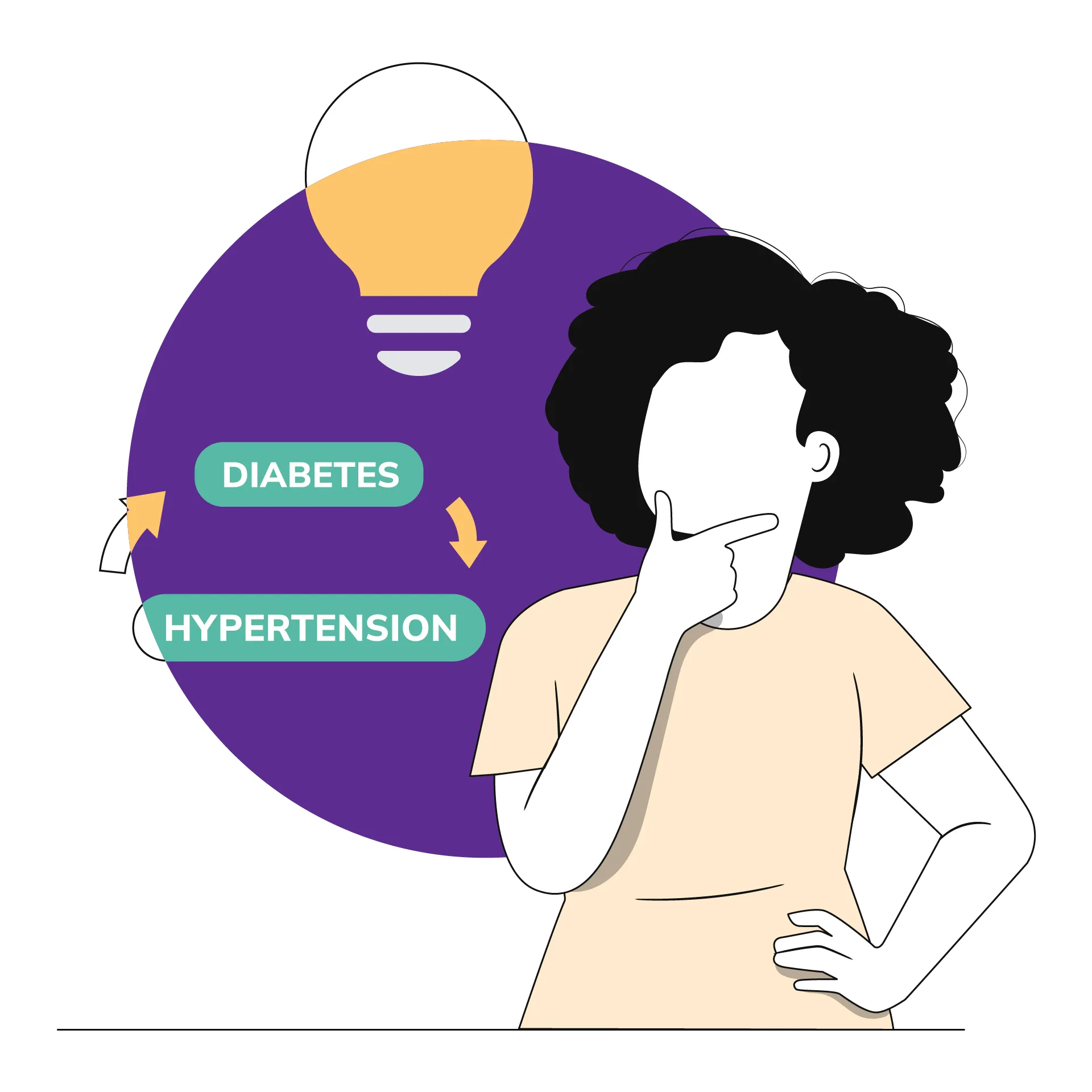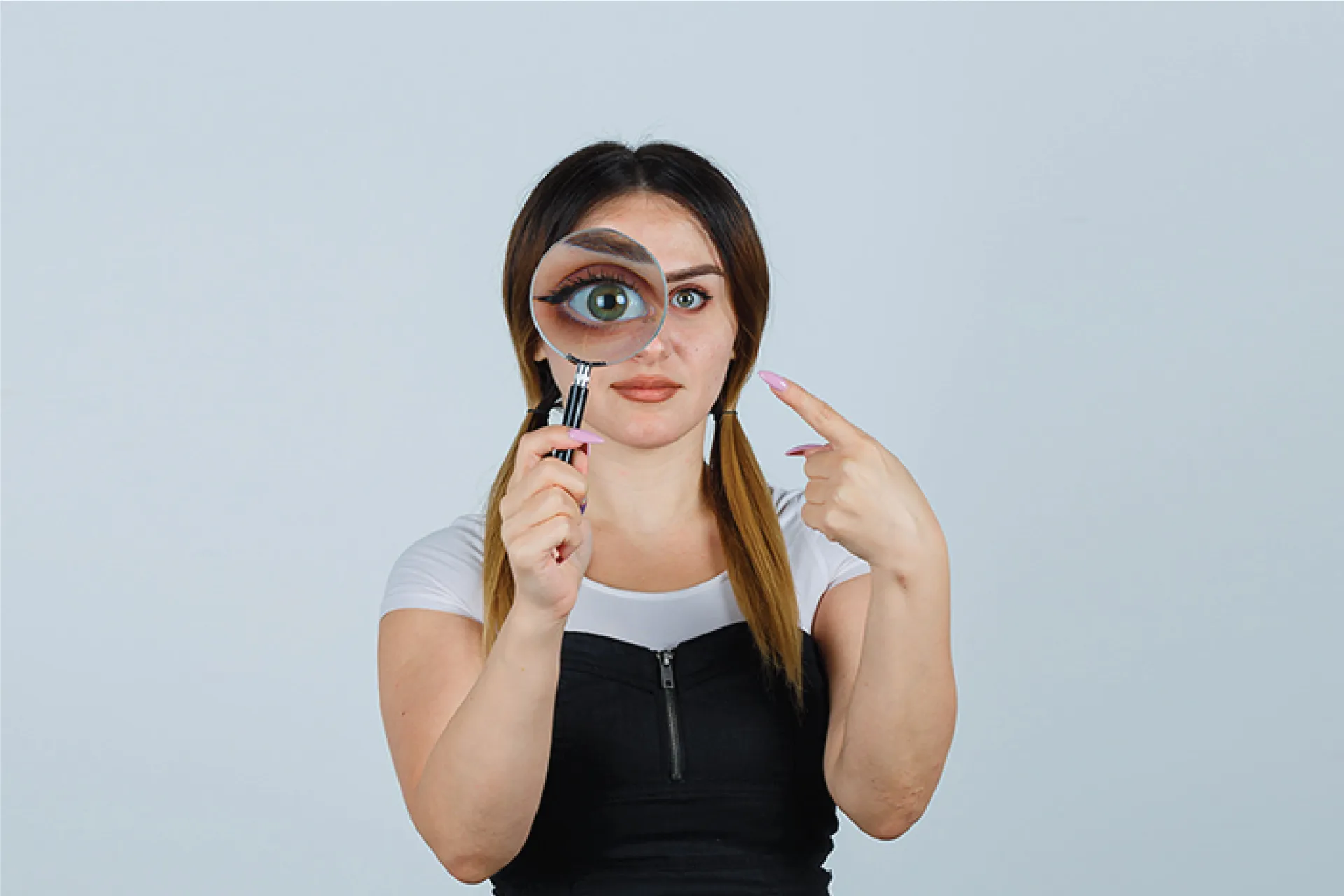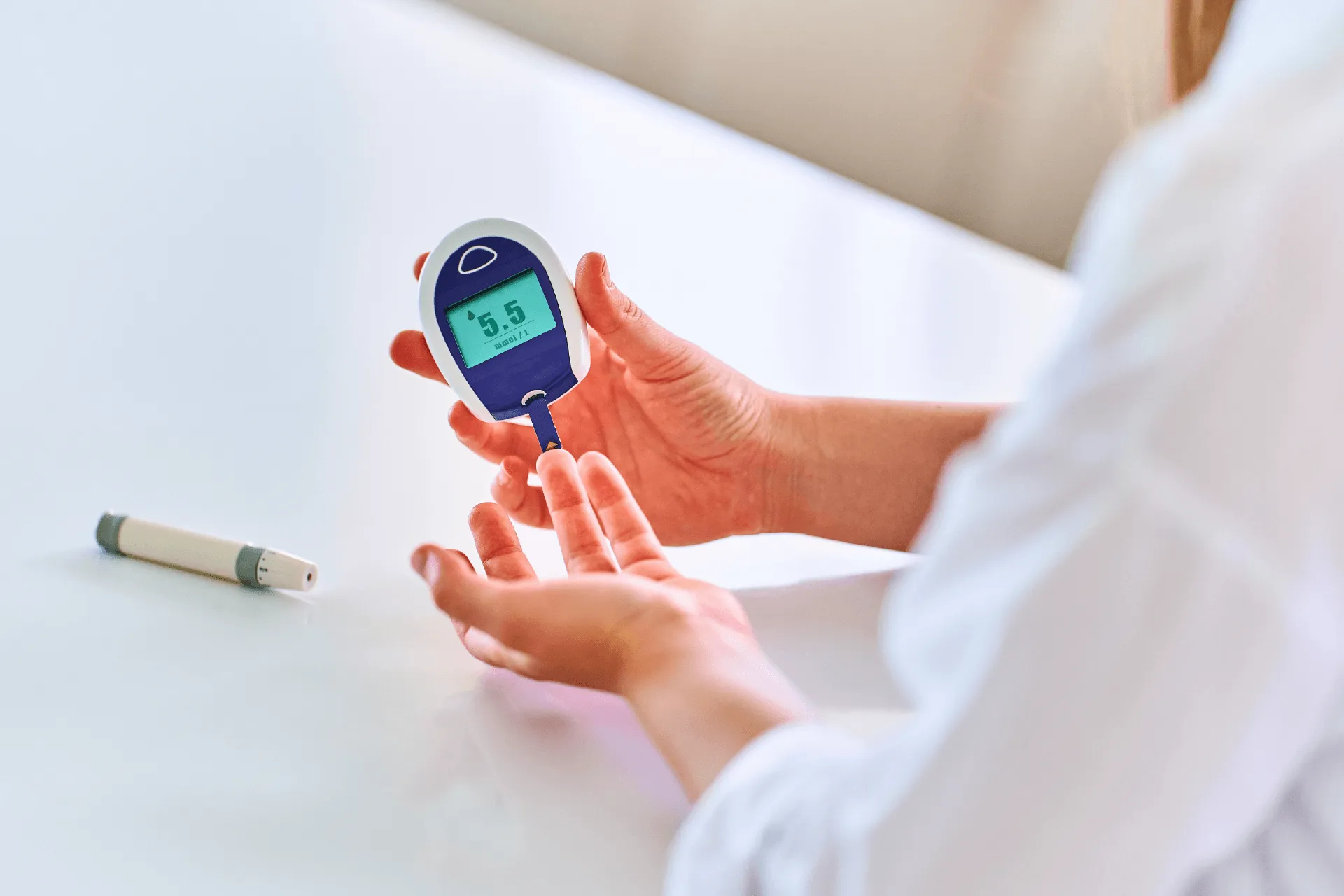General Physician | 4 min read
Diabetes and Hypertension Relationship: A Guide
Medically reviewed by
Table of Content
Key Takeaways
- Heart ailments and stroke are diabetes and hypertension complications
- Leading an active lifestyle is effective for diabetes and hypertension prevention
- Walking, swimming and cycling are some top diabetics’ exercises you can try
The first thing about the diabetes and hypertension relationship you may observe is that those showing type 2 diabetes symptoms also have hypertension. While the exact reason of this relationship remains unknown, these are a few common factors that may cause both these conditions:
- Obesity
- Sedentary lifestyle
- Diet rich in sodium and fat
- Chronic inflammation
Both diabetes and hypertension are major risk factors for heart ailments and stroke [1]. When your heart pumps blood with excess force, it causes high blood pressure or hypertension. No wonder it is called the silent killer! According to a report, approximately 33% of Indians residing in urban areas are prone to hypertension [2]. The inability of your body to produce the insulin hormone or use the produced insulin causes diabetes. If you do not monitor your blood sugar levels properly, it can cause dangerous complications. Approximately 8.7% of Indians are prone to diabetes and this number keeps increasing [3].
For proper insight on the diabetes and hypertension relationship, read on.

Identifying hypertension and diabetes
Identifying hypertension and diabetes is possible with some simple tests. You can even check your blood sugar or blood pressure at home by using home kits. For identifying hypertension, you need to be aware of how to check your readings. After you take the reading, you will observe two numbers. The one at the top is called systolic while the one at the bottom is the diastolic reading.
Here are the 5 stages of high blood pressure you should be aware of.
| Normal | Systolic <120, Diastolic <80 |
| Elevated | Systolic 120-129, Diastolic <80 |
| Stage 1 | Systolic 130-139, Diastolic 80-89 |
| Stage 2 | Systolic >140, Diastolic >90 |
| Hypertensive crisis | Systolic >180, Diastolic > 120 |
The final stage is the most crucial one that requires immediate medical attention.
In case of diabetes, you may not notice symptoms initially unless you take a blood test. Only when there is drastic increase in your blood sugar levels, you begin to notice the following signs.
- Blurred vision
- Frequent urge to urinate
- Excessive thirst
- Fatigue
If you have diabetes, you may also acquire urinary and respiratory tract infections.
After you fast for 8 hours, these are glucose level indicators in your blood for measuring whether you are diabatic.
- Normal: <100mg/dl
- Prediabetes: 100-125mg/dl
- Diabetes: >126mg/dl
Diabetes and hypertension complications
Your kidneys and blood vessels help maintain your blood pressure. When there is high blood sugar, it can affect your kidneys and blood vessels. As a result, your blood pressure increases and this can lead to other complications. The combined effects of both these conditions can add to your risk of heart ailments and kidney diseases.
Here are the ways in which both these conditions can cause complications:
- Your blood vessels may not be able to stretch properly
- If diabetes damages your kidneys, your body fluid may increase
- Insulin resistance can increase your blood pressure
Together these complications can lead to serious consequences like heart ailments, stroke and more. The only way to reverse the process is to control your blood pressure and blood sugar by taking timely measures.
Additional Read: How to manage hypertensionDiabetes and hypertension risk factors
Both these conditions share similar risk factors such as:
- Inactive lifestyle
- Tobacco consumption
- Eating unhealthy food
- Poor sleeping patterns
- Excess stress
- Reduced levels of vitamin D
- Old age
Diabetes and hypertension treatment
Treatment includes modifying your lifestyle and taking medication for diabetes and hypertension as prescribed by your doctor. You may require insulin shots to control blood sugar. In case of type 2 diabetes, you have to take metformin and other medications for reducing your sugar levels.
Another treatment option for diabetes is Lantus insulin. If you are wondering what is Lantus insulin, it is a brand name for insulin glargine and helps to regulate your blood glucose levels. You may also try out some of these top diabetics’ exercises:
- Cycling
- Swimming
- Aerobics
- Yoga
- Walking
For lowering high blood pressure, you may have to take beta blockers, ACE inhibitors and diuretics. These medicines improve blood circulation and reduce hypertension.
Additional Read: What is Lantus insulin?Now that you are aware of the link between diabetes and hypertension, make sure to keep a close watch on your symptoms. Making changes to your existing lifestyle habits can help you control blood pressure and sugar levels. Be consistent in following the treatment plan outlined by your doctor. To find the right medical help, you can connect to top specialists on Bajaj Finserv Health. Book an online doctor consultation to learn about the warning signs of hypertension and diabetes you need to watch out for and you can also avail diabetes health insurance in a single click.
References
- https://www.ncbi.nlm.nih.gov/pmc/articles/PMC3314178/
- https://www.ncbi.nlm.nih.gov/pmc/articles/PMC4011565/#:~:text=Overall%20prevalence%20for%20hypertension%20in,37.8)%3B%20P%20%3D%200.05%5D., https://www.who.int/india/Campaigns/and/events/world-diabetes-day
Disclaimer
Please note that this article is solely meant for informational purposes and Bajaj Finserv Health Limited (“BFHL”) does not shoulder any responsibility of the views/advice/information expressed/given by the writer/reviewer/originator. This article should not be considered as a substitute for any medical advice, diagnosis or treatment. Always consult with your trusted physician/qualified healthcare professional to evaluate your medical condition. The above article has been reviewed by a qualified doctor and BFHL is not responsible for any damages for any information or services provided by any third party.






